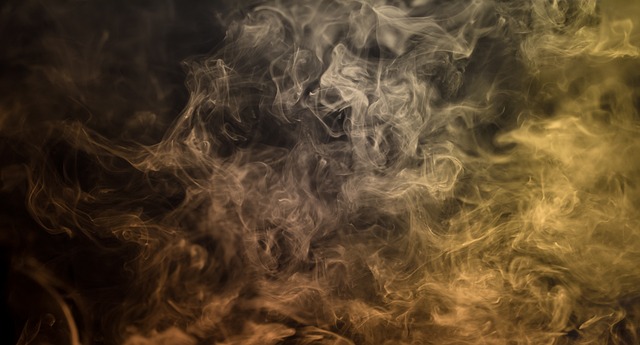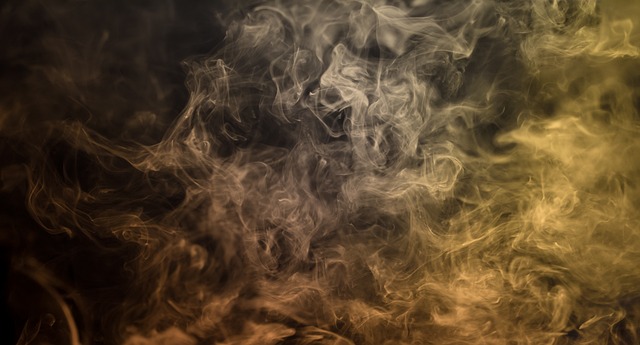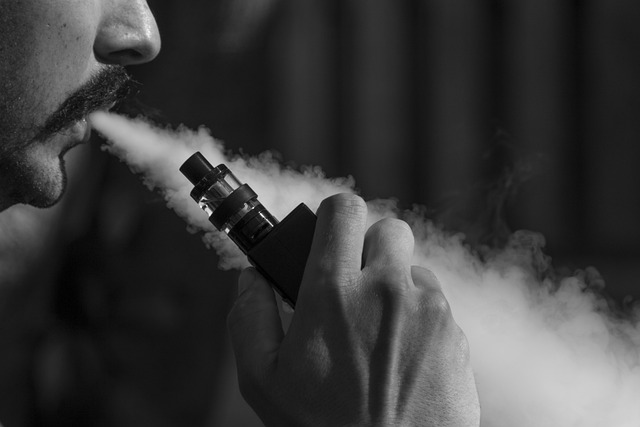Wisdom Teeth Removal: When Can You Smoke?
If you’re one of the many people who have undergone wisdom ????teeth removal, you might find yourself wondering when it’s safe to resume your smoking habit. While the temptation to ????light up may be strong, it’s important to understand the implications of smoking after this???? oral surgery. In this article, we ????will provide you with the knowledge and clarity you seek, discussing the ideal timeframe for smoking post-wisdom teeth removal, potential risks involved, and alternative options to satisfy your nicotine???? cravings. So, sit back, relax, and let’s delve into the intricacies of ????wisdom ????teeth removal and smoking.
1. Understanding ????Wisdom Teeth Removal: A Comprehensive Guide
Wisdom teeth removal is a common dental procedure that involves extracting the third set of molars, known as wisdom teeth. These teeth typically emerge between the ages of 17 and 25, and often cause various dental issues due to their late eruption and limited space in the mouth. Here is a comprehensive guide to understanding wisdom teeth removal:
1. Signs that wisdom teeth may need removal:
- Pain ????and swelling in the???? back of the mouth
- Tender or bleeding gums
- Jaw stiffness or difficulty opening the mouth
- Bad breath or an unpleasant taste in the mouth
- Crowding???? or shifting of nearby teeth
2. The extraction process:
Before the extraction, the dentist or oral surgeon will typically take X-rays to evaluate the position of the wisdom teeth and determine the best approach for ????removal. The procedure ????is performed under local anesthesia, and ????in some cases, general anesthesia may be used for ????more complex extractions. The dentist will make an incision in the gums, remove any bone covering the tooth, and then extract the tooth. Stitches may ????be required to close ????the incision, but in many cases, ????the gum will heal on its own. Recovery usually takes a few days,???? during which pain medication and a soft diet are recommended.

2. The Crucial Question: When???? Can???? You Safely Smoke After Wisdom Teeth Removal?
After wisdom teeth removal, one of the most common questions patients have is when they can safely smoke again. It’s important to???? understand that smoking after this procedure can significantly delay the healing process and increase the risk of complications. However, with proper care and patience, ????you can resume this habit ????without compromising your recovery. Here???? are some crucial points to consider:
1. Allow ample healing time: The initial healing period is crucial for successful recovery. It typically takes about 48 to 72 hours for blood clots to form and the extraction sites to close. During this time, it’s essential to avoid creating negative pressure in your mouth that can dislodge the clots. Smoking introduces heat and suction that can disrupt the clotting process, leading to a painful condition called???? dry socket. It’s advisable to refrain from smoking for at least 72 hours???? to allow proper healing.
2. Gradually reintroduce smoking: Once the initial healing period has passed, you can gradually reintroduce smoking, but it’s crucial to do so with caution. Start by ????taking small drags and avoiding excessive inhaling or creating strong suction. Consider using tobacco alternatives like ????nicotine patches or gum during the recovery period to satisfy your cravings without jeopardizing your healing process. It’s important to note that smoking???? can still slow down the healing process ????and???? may increase the risk of infection, so it’s best to minimize smoking as much as possible???? until you have fully recovered.

3. Navigating the Healing Process: Smoking and Its Impact on Post-Extraction Recovery
After a tooth extraction, it is crucial to navigate the healing process effectively in order to ensure???? a smooth recovery. Smoking can significantly impact this recovery, posing various risks and complications. Here, we will ????explore the negative effects of smoking on post-extraction healing and provide essential guidance for patients.
Risks of Smoking:
- Delayed Healing: Smoking hampers blood circulation, reducing the flow???? of oxygen and essential nutrients to???? the surgical site. This can delay the healing process, leading to prolonged discomfort and potential complications.
- Infection: Tobacco smoke contains harmful chemicals???? that can compromise???? the immune system’s ability to fight off infection. As a result, smokers who undergo???? tooth extractions are at a higher risk of developing infections at the extraction site.
- Dry Socket: Smoking increases the???? chances of developing a dry socket, a condition where the blood clot that forms after extraction dislodges or dissolves prematurely. This can cause severe pain and delay healing.
Guidance for Smokers:
- Quit Smoking: The best way to ensure a successful recovery is to quit smoking altogether.???? Consult with your healthcare provider for guidance and support in quitting this habit.
- Avoid Smoking Immediately: If quitting is not possible, refrain from smoking ????for at least 24-48 hours after the extraction. This ????will help reduce the immediate risks associated with smoking and increase the chances of proper healing.
- Follow Proper Oral ????Hygiene: Maintain good oral hygiene by regularly brushing and flossing your teeth. This???? will help minimize the risk of infections and aid in the healing process.

4. Expert Recommendations: The Ideal Timeframe for Resuming Smoking After Wisdom???? Teeth Removal
After undergoing wisdom teeth ????removal, it is crucial to give your body ample time to heal before ????resuming your ????smoking habits. Experts recommend waiting for a specific timeframe to ensure proper recovery and minimize potential complications. Here are some expert recommendations regarding the ideal time to resume smoking after???? wisdom teeth removal:
1. Wait at least 48 hours: It is???? crucial to refrain from smoking for???? at ????least 48 hours after the procedure. This initial period allows for blood clot formation and reduces the risk of dry socket, a painful condition that occurs when the blood clot dislodges from the extraction site. Smoking during this time can disrupt the healing process and increase the chances of complications.
2. Extend the waiting period: While waiting 48 hours is the minimum, it is advisable to extend the timeframe to ensure optimal healing. Experts suggest refraining from smoking for at least a week, if possible. This allows the extraction sites to fully heal and reduces the risk of infection and delayed???? recovery. Taking this ????extra precaution can significantly contribute to???? a smoother and more comfortable ????healing???? process.

5. Weighing the ????Risks: ????Potential Complications of???? Smoking Too Soon ????After Wisdom Teeth Extraction
Smoking too soon after wisdom teeth extraction can significantly increase the risk of complications during the???? healing process. It is crucial to understand these potential risks before making the decision to smoke. Here are some key complications to consider:
- Dry Socket: This is the most common complication associated with smoking after wisdom teeth extraction. When a blood clot fails to form or is dislodged prematurely, the underlying bone and nerves become exposed. Smoking introduces heat, chemicals, and toxins that can delay the healing process and ????increase the chances of developing dry socket.
- Infection: Smoking compromises the body’s immune system, making it more susceptible to infections. After wisdom teeth extraction, the extraction ????site is prone to bacterial growth. Smoking introduces harmful substances that can slow down the healing process and???? increase the risk of infection. This can lead to additional pain, swelling, and extended recovery time.
By avoiding smoking for the recommended period of time after wisdom teeth???? extraction, patients can???? greatly reduce the risk of these complications. It is important to prioritize the ????healing process and follow the instructions provided by the oral surgeon or dentist. Quitting smoking ????altogether can have long-term ????benefits for ????oral health, reducing the risk ????of other dental complications in the future.
6. Alternatives and Precautions: Strategies to Manage Nicotine Cravings During the Healing Period
Managing nicotine cravings during the healing period can be challenging, but with the right strategies and precautions,???? it is possible to overcome them. Here are some effective techniques that can help you navigate this ????phase:
-
- 1. Nicotine Replacement Therapy (NRT): Consider using NRT products such as nicotine patches, gums, or lozenges. These alternatives can provide a controlled dose of nicotine, gradually reducing cravings and easing withdrawal symptoms. Consult with a healthcare professional to determine the most suitable NRT option for you.
- 2. Behavioral Modifications: Engage in activities that distract your mind from cravings. Exercise regularly, practice deep breathing techniques, or indulge in hobbies ????that keep you occupied. Additionally, ????identify triggers that may lead to cravings and try to avoid or modify these situations.
- 3. Support Systems: Seek support from friends, family, or support groups. Surrounding yourself with individuals who understand your journey can provide motivation and encouragement. Consider joining a smoking cessation program or seeking professional counseling to enhance your chances of success.
- 4. Healthy ????Lifestyle Choices: Maintain a healthy diet, ensuring you consume regular, well-balanced meals. Staying hydrated can also help diminish cravings. Engage in stress-reducing activities ????like yoga or meditation, as stress can amplify nicotine cravings.
????
Remember, ????everyone’s journey is unique, and what works for one person may not work for another. It may take time and experimentation to find the most effective strategy to manage ????nicotine cravings during the healing period. Stay committed, believe in yourself, and know that you have the strength to overcome this challenge.
7. Prioritizing Oral Health: Making Informed Decisions About Smoking Following Wisdom Teeth Removal
After undergoing wisdom teeth removal, it is crucial to prioritize your oral health to ensure a smooth recovery. One important aspect to consider is smoking, as it can significantly impact the healing process and increase the risk of complications. By making informed decisions about smoking following this procedure, you can promote optimal ????oral health and reduce the chances of experiencing any adverse effects.
Smoking after wisdom teeth removal can delay the healing process and increase the risk of dry socket, a painful condition where the blood ????clot that forms in the tooth socket is dislodged or dissolves. To avoid this, it is strongly advised to abstain from smoking for at least 72 hours after the surgery. The nicotine and other harmful chemicals in cigarettes can constrict blood vessels and impair blood flow, hindering the formation of???? a healthy blood clot ????that is essential for proper healing. Additionally,???? the act???? of smoking itself can create???? suction and negative pressure in the mouth, further disrupting the blood clot and prolonging the recovery period.
Frequently Asked Questions
Q: When can you smoke after wisdom teeth removal?
A: It is recommended to avoid smoking for at least 72 hours after wisdom teeth removal to promote proper healing and minimize complications.
Q: Why should smoking be avoided after wisdom teeth removal?
A: Smoking can hinder the healing process and increase the risk of developing dry sockets, infections, and other post-operative complications.
Q: ????What are the risks of smoking too soon after wisdom teeth removal?
A: Smoking too soon after the procedure can???? delay healing, cause excessive bleeding, and increase the chances of developing painful dry sockets.
Q: How does smoking affect the healing process ????after wisdom teeth removal?
A: Smoking constricts blood vessels, reduces blood flow, and impairs oxygen delivery to the surgical site, thereby hindering the healing process and increasing the risk of???? complications.
Q: What are dry sockets, and why are they a concern after wisdom teeth removal?
A: Dry sockets occur when the blood clot that forms after extraction becomes dislodged or dissolves prematurely, exposing the bone and nerves. Smoking can disrupt the blood clot, leading to???? the development of dry ????sockets, a painful condition that requires additional treatment.
Q: Can smoking e-cigarettes or using nicotine patches be an alternative?
A: Even though e-cigarettes and nicotine patches do not involve direct smoke inhalation, they still contain nicotine, which can constrict blood vessels and impede healing. It is advisable to refrain from all forms of nicotine consumption, including e-cigarettes and nicotine patches, ????after wisdom teeth removal.
Q: How long should one wait to smoke after ????the 72-hour period?
A: It is best to consult with your dentist or oral surgeon for personalized advice. In???? general, it is recommended to wait at least 7-10 days???? before resuming smoking after wisdom teeth removal to allow for optimal healing.
Q: Are there any alternatives to smoking during the recovery period?
A: Yes, there are alternatives to smoking during the recovery period. Chewing gum, using nicotine???? gum or lozenges, or exploring other smokeless options ????can help satisfy nicotine cravings without compromising the healing process.
Q: What other precautions should be ????taken to???? ensure a smooth recovery after wisdom teeth removal?
A: It is crucial to follow post-operative???? instructions provided by your dentist or oral surgeon, including proper oral hygiene, taking prescribed medications, eating???? soft foods, avoiding strenuous activities, and attending follow-up appointments. These precautions will aid in a smooth and speedy recovery.
Insights and Conclusions
In conclusion, wisdom ????teeth removal is a common procedure with a???? few important considerations, particularly when it comes to smoking. It is crucial???? to follow the guidance of your dentist or oral surgeon to ensure a smooth ????and speedy recovery. Remember that smoking can increase the risk of complications such as dry socket, delayed healing,???? and infection. It is best to avoid smoking for at least 72 hours after the surgery, but ideally, quitting altogether during the recovery period is recommended. By prioritizing your oral health and following the expert advice, you can ensure a successful and hassle-free wisdom teeth removal experience.






